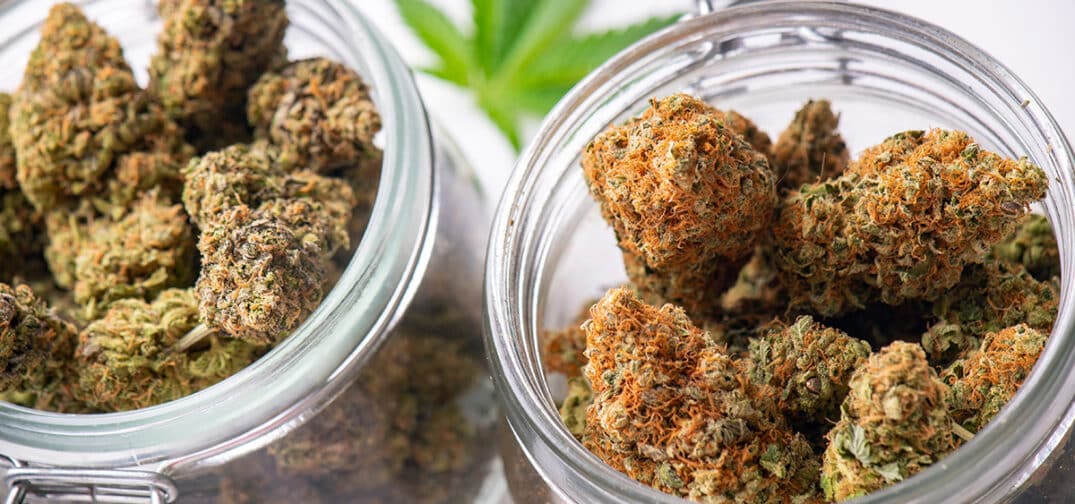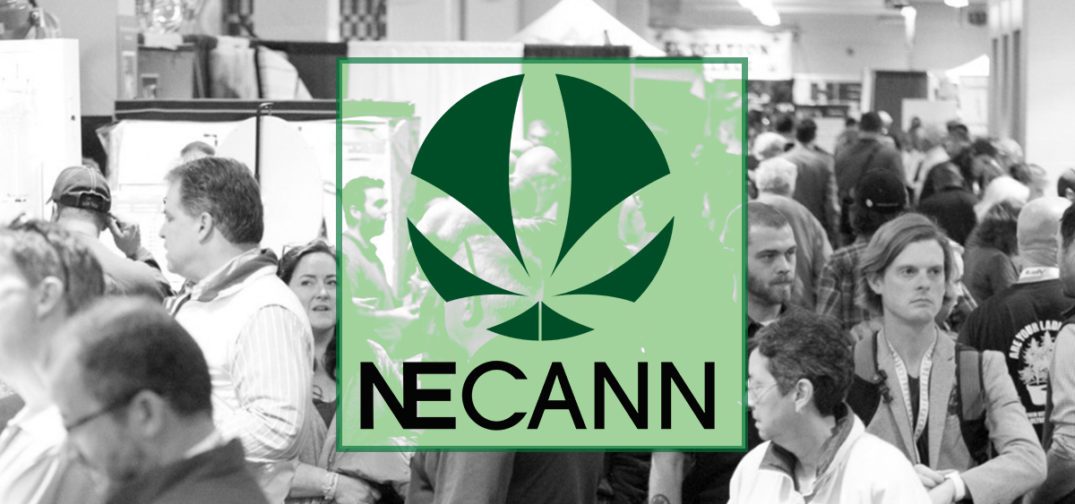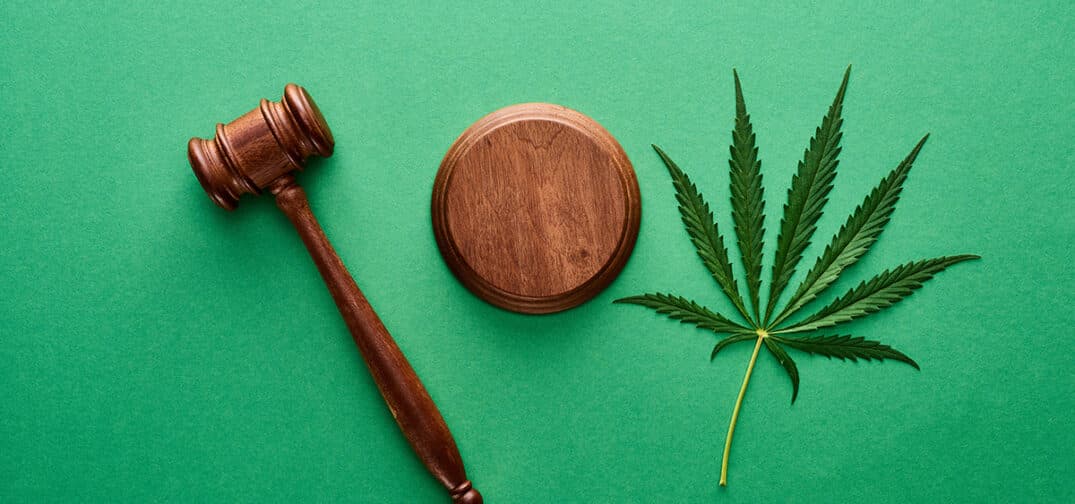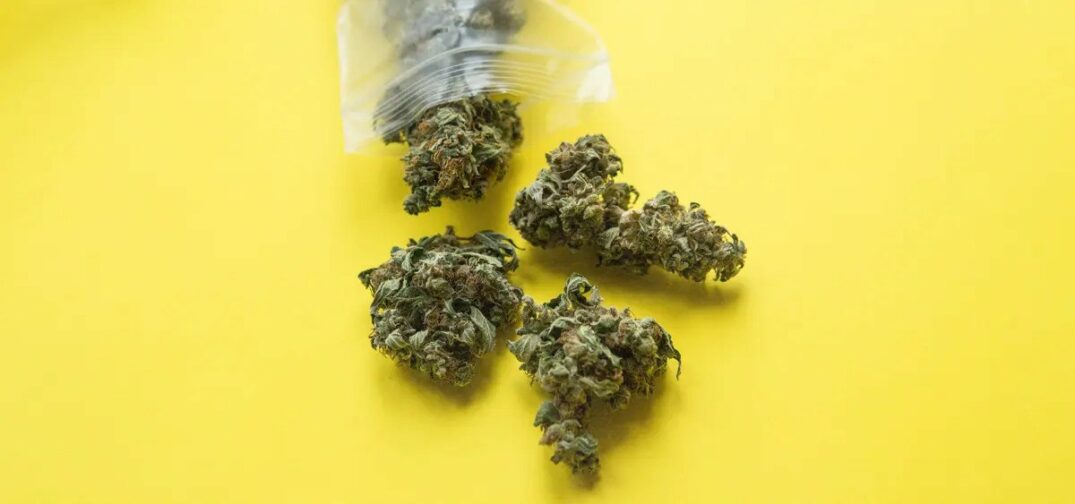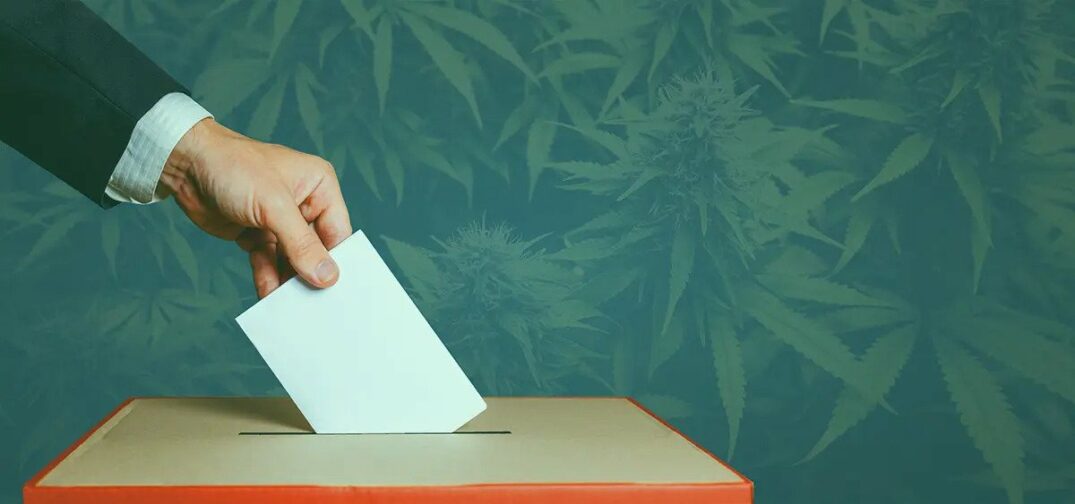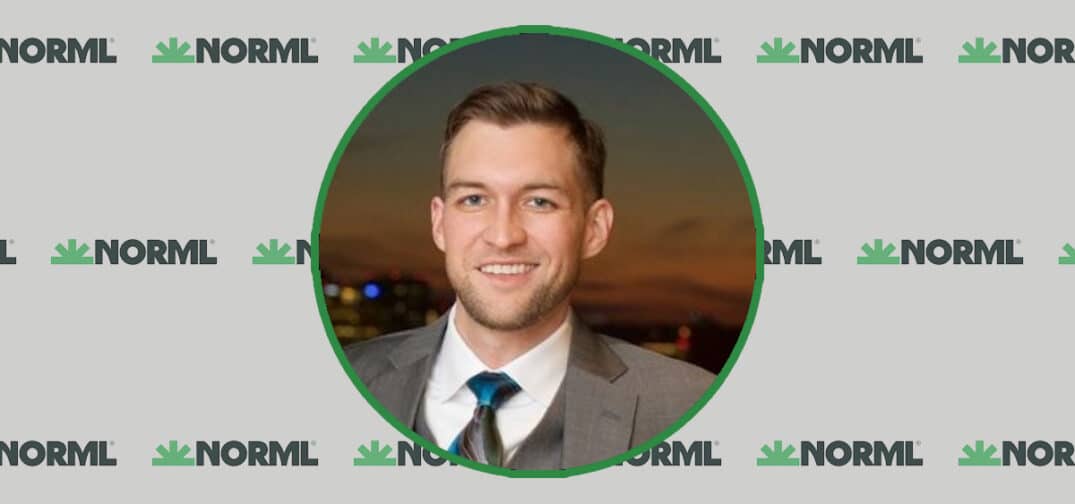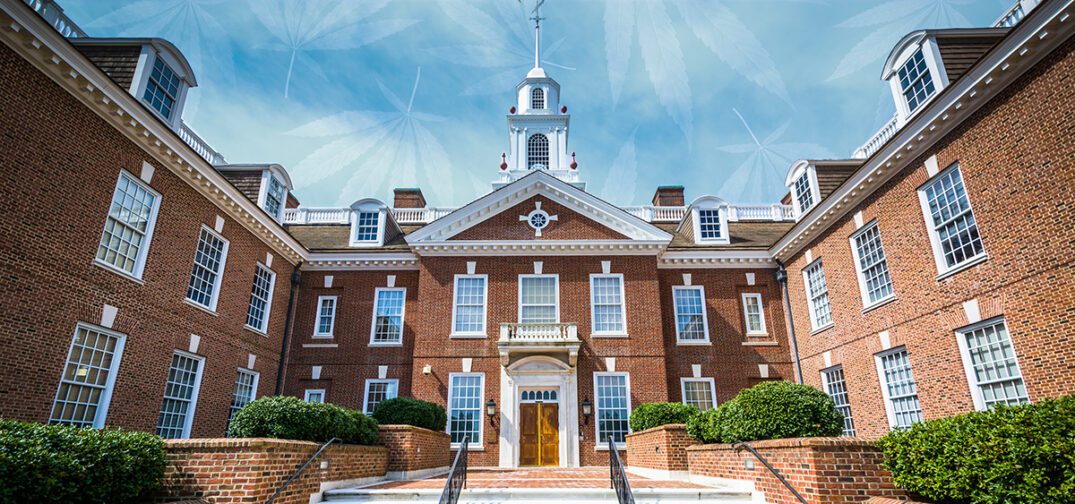The DEA’s public hearing regarding changing the classification for cannabis is scheduled for December 2nd, but what would Schedule III really mean for the industry as it exists today? In this episode of the Ganjapreneur Podcast, host TG Branfalt sits down with Morgan Fox, Political Director for NORML, one of the nation’s leading cannabis advocacy organizations founded in 1970. Morgan brings over a decade of experience in cannabis policy reform to the conversation, discussing the Biden administration’s announcement on cannabis rescheduling and the real-world impact it may—or may not—have on the cannabis industry, consumers, and criminal justice.
Morgan also sheds light on the intricate political dynamics that influence cannabis policy at the federal level, from potential barriers in the rescheduling process to the ongoing battle for meaningful reform in Congress. Whether you’re interested in cannabis law, industry tax issues, or the future of cannabis legalization, this episode offers deep insights into the current state and future possibilities of cannabis policy in the United States.
Find the episode wherever you listen to podcasts, or listen via the media player below! (Scroll down for the full transcript.)
Listen to the episode:
Read the full transcript:
Editor’s note: this transcript was auto-generated and may contain errors
Commercial:
The Ganjapreneur Podcast is made possible by over 500 cannabis industry service providers in Ganjapreneur’s Cannabis Business Index. At some point, every plant touching brand experiences the stigma that many industries still have to toward cannabis going strong. Since 2015, our business index is the most comprehensive and frequently visited directory for cannabis friendly services on the internet, saving you the time and hassle of sifting through uninformed and unwelcoming providers with categories for everything from business financing to extraction equipment to interior designers and public relations. You’ll find every kind of specialist and business service you could ever need. Check out the business index today at ganjapreneur.com/businesses.
TG Branfalt:
Hey there, I’m your host, TG Branfalt, and this is the Ganjapreneur.com podcast where we try to bring you actionable information and normalized cannabis through the stories of entrepreneurs, activists, and industry stakeholders. Today I am joined by Morgan Fox. He is the political Director for NORML, which has advocated for cannabis policy reforms since 1970. How are we doing this afternoon, Morgan?
Morgan Fox:
Doing great. How about yourself?
TG Branfalt:
Cool, man. Cool. We are recording this interview’s on the heels of the Biden administration announcing that they would reschedule cannabis from a Schedule one drug to a Schedule three drug. But before we get into that, my man, I know you’ve been on the show before, but just remind people about your background and how long you’ve been at NORML and what your job entails.
Morgan Fox:
Sure. So I’ve been involved in a cannabis policy reform professionally since 2008. Started out at Marijuana Policy Project as an intern with basically just a backpack, a guitar to skateboard, rolling down to DC from Cleveland and was offered a full-time position shortly after that. Spent about 10 years at Marijuana Policy Project finishing up there as their director of communications before moving over to the National Cannabis Industry Association as their media relations director, and then spent a little under four years there before pivoting to NORML and working primarily in federal policy and lobbying. Although these days I wear a lot of different hats within the organization, but I really wanted to move more towards a consumer advocacy perspective and NORML was a perfect opportunity for do that. So really happy to be at this organization doing the work that’s been going on for more than 50 years now, as you said, a very momentous time.
TG Branfalt:
Yeah. So let’s talk about that a bit. There’s a lot of punditry going on, a lot of what will this do in your eyes as political director for NORML in NORML’s eyes? What will Federal do sort of broadly and for the cannabis industry at large?
Morgan Fox:
Before we get into that, I think it’s really important that we talk about the timing.
TG Branfalt:
All right.
Morgan Fox:
And because I think a lot of people might have the misconception that because of the Biden administration announcements and because of a lot of the rumors that have been swirling around on the internet, et cetera, that this is a done deal and it is not. DEA has final jurisdiction over this call unless Congress acts. Now, obviously, the administration can put pressure on federal agencies to enact the policy changes that it wants to see, but unfortunately, the Biden administration is not really in a position to do that with an election coming up with increasing partisan ranker going on within Congress and just generally in the United States, but also when we’re seeing pretty much daily hearings in Congress about weaponization of federal agencies for political purposes, the Biden administration really isn’t in a position to put too much pressure on the DEA to either expedite this ruling or to rule in any particular way despite all of the research that backs up this move, this is one of the problems with calling for complete descheduling. So when this process began with the formal announcement from the DEA and the Department of Justice that there was a notice of prose rulemaking, the White House office had 60 days to approve that and move it further down the process, they did that within a couple of days, which was not entirely unexpected, but still a really good sign that the administration supports this move and that is willing to throw its way behind it. Bureaucratically now we’re entering into the public comment period, which starts officially tomorrow, supposedly and will last
TG Branfalt:
May 21st. May 21st,
Morgan Fox:
Exactly. And will last approximately 60 days normally. And our allies are going to be trying to flood the comment section with information that the DEA really needs to make a decision on this because if you noticed, and the notice of proposed rulemaking was almost a hundred pages long and essentially laid out all of the reasons why they are going to ignore the information that HHS sent them, which a lot of people are saying is binding, but as soon as the public comment period begins is no longer binding, it has to be given significant deference. But that’s a very subjective term.
TG Branfalt:
Lemme just ask you real quick is how much of a difference would, I guess, as you put it, flooding this public comment? What kind of impact could that have?
Morgan Fox:
Well, I think it could have a significant impact because all this stuff goes on the record, and we’re going to be working with physicians, with patients, with average citizens, with advocacy groups to try to get the best information submitted during that public comment to make sure that people are seeing the real science and also seeing the real impacts that rescheduling could have or that rather not that rescheduling could have, but that keeping cannabis in Schedule one will continue to have. But that’s a very important point, but that process only lasts 60 days, so that’s going to be starting on May 21st. Supposedly there might be a delay of a couple of days, but it seems like the process is moving already after that 60 days. There is an administrative review process, so for the first 30 days of the comment, people can request hearings. I am fairly certain that those hearings will be granted because DEA wants more opportunity to show why it disagrees with the recommendations based on scientific information to not reschedule cannabis.
TG Branfalt:
And DA thinks that they have that scientific information,
Morgan Fox:
They think they do, and they want every opportunity to show it. And because they are the sole arbiters of the administrative judicial review, they can make that last as long as they want in previous attempts. And NORML has been involved in rescheduling petitions since basically 1972, and this period has always lasted much longer than we thought it would. We’re talking years. So the DEA has the ability to make this period after the public comment last for as long as they want, and then after that, there’s an initial period of rulemaking and debate, and then once they make a final recommendation, there’s 30 days until it becomes law, at which point it is then able to be challenged through litigation before it really becomes a law. So we’re talking about a process that despite the fact that the Biden administration fast tracked its portion of it could potentially last years. So I just wanted to temper everyone’s expectations that this is something that’s going to happen immediately because it’s a long drawn out process that everybody that wants to see these changes happen is going to have to be involved in some fashion.
TG Branfalt:
I mean, but with your explanation, it doesn’t sound exactly like the monumental decision that the administration sort of pegged it as I
Morgan Fox:
Well, symbolically, I think it’s very, very important. This is the first time that any administration or HHS has said that cannabis does not belong in Schedule one, which we all know is the case. And it’s definitely the first time that the administration has fast tracked its portion of the review process after the notice of proposed rulemaking has happened. I think that solidly shows that the Biden administration is behind this change, but again, it’s going to take a while. So I think that we have to temper our expectations in that regard, but also we really need to think about what sort of practical changes a switch to Schedule three would actually have on both the industry as well as consumers and criminal justice.
TG Branfalt:
I do want to get to that, but let’s go back a little bit here. In layman’s terms, what would federal rescheduling actually do?
Morgan Fox:
Really the most notable change is that it would resolve, at least in theory, resolve the two 80 E tax issue for licensed cannabis businesses under the current two 80 E tax code. Legal cannabis businesses cannot deduct a lot of the same normal business expenses that any other industry can, resulting in an effective federal tax rate of sometimes up to like 70 or 80% if not more, in addition to all of the state taxes and local taxes and regulatory compliance costs that they have to deal with. Two 80 E is a big reason that most cannabis businesses are operating in the red right now and will continue to do so. It’s not the be all end all solution to their financial problems by any stretch of the imagination, but it does take a significant amount of heat off that. I think most importantly though, it’s to talk about what it doesn’t do, which is it does not harmonize state and federal cannabis law.
It does not all of a sudden make cannabis legal medically because in order to be in compliance with Schedule three, cannabis would have to be approved by the FDA. This is a process that could take 10. Well, first of all, it’s a process that the DEA or the F FDA A is not set up to handle. Cannabis is relatively unique and there’s no history within the FDA of approving a substance that has adult use purposes. It has medical purposes. It comes in many different forms. It’s a botanical substance, so it’s notable in any sort of a consistent manner. Basically, the FDA is not set up to deal with things like cannabis as it currently exists. It is definitely set up to deal with cannabinoid drugs that have been developed pharmaceutically such as Dronabinol, Marinol, ros, Epidiolex, et cetera. But in order to get those sort of specific cannabinoid pharmaceutical products approved takes tens to hundreds of millions of dollars and many years of approval process.
So it’s pretty clear that cannabis is not going to be approved as a plant medicine or just as a recreational plant or as a plant in and of itself by the FDA under its current structure, there is a lot of talk at the FDA to create a specific lane for cannabis or for specific cannabinoid products that would really encompass all of its different uses and all of its different formulations, but that has not really come to fruition yet. There’s congressional legislation that is looking at that, and I think folks at the FDA are also looking at that. But all that is to say that in order for even medical programs at the state level to be in compliance would, first of all, cannabis would have to be approved by the FDA, which is not going to happen under the current structure. And then if it was then all existing state systems regarding medical or even adult use would have to be completely broken down and start from scratch because cannabis would have to be sold in pharmacies instead of dispensaries.
It would have to be by prescription only. This is what Schedule three means for drugs from a consumer perspective, I think it’s also important to point out that Schedule three doesn’t really remove any significant barriers to research, which I know a lot of people have been talking about. It doesn’t do anything for the criminal justice aspect of cannabis at the federal level in terms of people continuing to get arrested or in terms of either pardons, expungements, clemency, sentencing, relief of any sort. And also there are a number of federal policies in place regarding employment suitability, security clearances, et cetera, that are specific to cannabis and are not related to the schedule whatsoever. That would also have to change. So a simple schedule change is really, I think, only going to impact the two 80 e tax code in any sort of a practical impact in the near term should it be approved, which is not a guarantee. And also that the time in which it would get approved is not a guarantee either.
TG Branfalt:
So I do want to ask you about the timing. Let’s say that this went beyond the whole process went beyond the election, and let’s say that Donald Trump, the Republican presumptive nominee were to be elected could with a sort of swipe of his pen, could he just say, no, we’re not doing this.
Morgan Fox:
I mean, he could certainly direct federal agencies to deprioritize it and in a different political environment might have a whole lot more power over exactly what they do. In particular, threatening to terminate the heads of agencies and organizations within the federal government. If they don’t comply, then the Biden administration currently has. So yes, I think it could get shut down or slowed down significantly. I think in that particular scenario, it really depends on whether or not a presumptive president Trump recognizes the political usability of allowing the process to go forward.
TG Branfalt:
Forward. And so you did mention that medical cannabis program, state cannabis programs would have to be broken down and start from scratch. Do you think that this is something that we really aren’t talking about? Because it is one of those things where when this was announced and I started talking to my friends who own shops and that sort of thing, and they said, oh, we’ll be able to two 80 E, and they talked about that, but I said, listen man, this could put you out of business effectively because of how schedule three, what’s under schedule three? Is that something that we are not talking about enough?
Morgan Fox:
I think we only have to worry about that if the federal government in particular DOJ and FDA decide that they want to really start enforcing it. DOJ has a current policy now of non-enforcement for people that are in compliance with state medical cannabis laws. That’s actually adjudicated by Congress in a recurring appropriations bill that actually prevents the Department of Justice from spending any money to go after people that are in compliance with state medical laws. And we’re in the process of trying to expand that to adult use programs. But aside from the medical part for adult use, DOJs policy has been since the Cole Memo and even after the recession of the Cole Memo from acting or then Attorney General Jeff Sessions to withdraw the Cole Memo, federal prosecutors have behaved relatively the same as under the Cole Memo, but there’s just a little bit less of an organization wide enforcement on that that could change if there is a change in administration and a change of Attorney General as we saw during the first Trump administration. But the bottom line is that unless there’s a huge uptick in enforcement from DOJ and FDA that states are going to continue doing what they have been doing, which is operating in violation of federal law.
TG Branfalt:
So regardless of this rescheduling proposition, the situation for cannabis businesses is still going to be precarious. Is that correct?
Morgan Fox:
I mean, as precarious as it always has been, it’s still in violation of federal law. There are going to be a number of factors that come into play regarding exactly how precarious it becomes over the coming months and over the next couple of years. But really it does not change things on the ground outside of the tax issue.
TG Branfalt:
And were you and NORML as an organization surprised at this action?
Morgan Fox:
I was surprised at how quickly the wheels of bureaucracy moved within the White House to approve it, that this is a major issue for the Biden administration and in particular vice President Kamala Harris, probably a little bit less so to the president himself, but it’s also an issue that the administration as a whole is really trying to make a standout issue to help attract younger voters. So I mean, I think that aside from the rescheduling conversation, it’s really important for us to continue putting pressure on the administration to do the things that it can do unilaterally, which is expand the scope of the pardons that it has already issued, start making stronger public statements about the need for descheduling and about the need for Congress to start enacting expungement provisions and things of that nature. But as I said, politically, it’s going to be very difficult for the administration to pull any levers in terms of the actual administrative process of schedule review after this point. The fact that they did so quickly I think is a really good sign that they’re in our camp and that they want to try to move this process along as quickly as possible, but now it’s not really in their hands anymore.
TG Branfalt:
And let me ask you about the impact, the overall impact of the, pardon that the pardons that President Joe Biden has given to federal cannabis people convicted of federal cannabis crimes. How much of a sort of was that revolutionary? I mean, how much of an impact did that really have because there’s not a whole lot of federal cannabis convictions for possession?
Morgan Fox:
Well, the estimates about how many individuals were impacted varies because in order to actually get the certificate, you had to individually apply. But all those pardons are in effect. It’s just that they might not necessarily impact somebody’s ability to get a job or to get housing or education unless they have the certificate and they have to go and try to get the certificate themselves. And so I think that additional promotion of the fact that a lot of folks that have these charges is really incumbent on the White House to do, and they’ve been doing a pretty good job of talking of this move and the president went so far as to then extend it a little over a year over or after the initial announcement in order to bring more people under the auspices of the pardon. But the pardon announcements have a very set date.
So anybody that gets arrested after the issue of events of the pardon is not eligible yet. We’re hoping to get expansion on that. But also it’s important to note that a pardon is not an expungement. So your arrest record at the federal level for a low level offense that may have been pardoned by the president is still going to show up in a background check. And you need to have that certificate there to show that it has been pardoned. And even then, it’s not an expungement, but we are talking about thousands of people that are eligible for this and that have been pardoned. Only a few hundred of ’em actually know about it yet and have gotten the certificates.
TG Branfalt:
So you’ve been in DC working on cannabis policy for the better part of a decade. Is this the most weed friendly administration during your time in Washington?
Morgan Fox:
Hands down.
TG Branfalt:
Hands down,
Morgan Fox:
Hands down.
TG Branfalt:
Is that a surprise?
Morgan Fox:
Do President has done more for cannabis policy reform than Joe Biden. Now there’s a lot more that he could do. There’s a lot more that he should do. But in terms of friendly administrations, this is really like a night and day change. During the Trump administration, we saw a few limited public statements and we saw a little bit of movement on criminal justice reform like the First Step Act, but a lot of it was really not focused on cannabis outside of a few pardons and clemency actions specifically directed towards some people that really, really, really deserved it. Folks like Walton Angelos and Alice Johnson. But in terms of mass actions, not really. And the first person that he put in charge of the DOJ was an avowed anti-cannabis drug warrior in Jeff Sessions. Admittedly, he fired him pretty shortly after he rescinded the Cole Memo and he put in somebody that for all of his potential faults and for all of his disagreements with the Trump administration, had made several statements that cannabis enforcement in legal states was not going to be a priority, which I think is a huge step in the right direction.
But yeah, if we’re really breaking it down, even if you go back to Obama, I mean during the first years of the Obama administration, we were still seeing massive raids in California of medical cannabis providers, violent SWAT raids. We never saw any public statements from the Obama administration that cannabis should be legal or that nobody should be put in jail for cannabis. I would like to see the Biden administration now that it’s admitted that nobody should be in jail for cannabis to extend that to nobody should be arrested for cannabis. But that being said, despite the fact that there’s a lot of things that the Biden administration can do in the next couple of months, and if it happens to win reelection for the next four years to improve upon its record, still more than any sitting president has ever done for this issue.
TG Branfalt:
And I want to talk to you about one of the bills in Congress that would legalize cannabis federally, the more act, again, you’re in Washington, you’re there in the sort of dirt of the Capitol. What are the odds that the more act could pass both chambers?
Morgan Fox:
Very good, but not in this current Congress. As I’m sure everybody listening knows, Congress is pretty dysfunctional at this point.
The idea of being able to pass comprehensive descheduling and regulatory legislation is slim to none. We might have some opportunities to be able to pass more incremental legislation like Safe Banking or Bills Protecting Second Amendment rights for lawful cannabis consumers or bills, protecting housing rights for lawful cannabis consumers, legislation that could potentially provide federal funding to states and localities that want to help expedite the expungement process at the local level. Because obviously most arrests happen at the state level. They don’t happen at the federal level. So providing resources to help expedite and move that process along are absolutely necessary, especially since a small amount of dollars go really, really far once you get the system automated. But in terms of passing standalone descheduling legislation, it’s just not going to happen in the current Congress. However, we do have an opportunity to try to get as many co-sponsors as possible on both the Moore Act and on the Senate side, the Cannabis Administration Opportunity Act, so that we can roll into the a hundred 19th Congress with a broader base of support and with enough support that we can actually get these bills introduced very early in the session and start fast tracking them.
TG Branfalt:
And you had mentioned the sort of incremental steps that we could take. In my sort of estimation, I believe that it’s going to be another 50 years before we get full federal legalization in Descheduling, and I think that we will get the maybe incremental steps like you mentioned. Is that me just being grim or what do advocates think about that?
Morgan Fox:
I think we’re on a much shorter timeline than that for Descheduling either administratively or through Congress. But I do think that it’s going to have to come through Congress, but I don’t think it’s going to take another 50 years. I am loathed to estimate exactly how long it could take because unfortunately cannabis is subject to a lot of political realities that are completely unrelated to cannabis that either lower its priority on the consideration scale or that cause people that might be supportive of cannabis policy reform to use it as a cudgel against people across the aisle or to try to attack their political rivals. And we saw a perfect example of this last year where a relatively innocuous veterans related study bill was passed in the Center of Veterans Committee. And then when that bill along with a bunch of other non-cannabis related veterans bills were brought up for a cloture vote to try to skip the whole process and just bring them to a vote. People that were on the Veterans Affairs Committee that voted in favor of that measure and others that were in the package voted no on bringing it to a cloture. And Senator John Corny from Texas was on record as saying that the reason for that was because they did not want to give Senator Tester from Montana who is a Democrat, a win when he was leading up to an election year. So unfortunately, cannabis is often the victim of things that are far beyond our control.
TG Branfalt:
And you had mentioned the Safe Banking Act, which the sort of short version is would allow cannabis companies access to traditional financial services. That legislation has passed the house, and I may correct me if I’m wrong here, six times, 7, 7, 7 times. Anyway, what is stopping it in Congress is it’s still just this politics sort of issue as you just alluded to.
Morgan Fox:
There’s a little bit of that, but also because in order for this to become law, I mean I think that if it were to come up for a vote in the Senate, it would probably pass, but there’s no solid pathway for it in the house right now because standalone legislation regarding cannabis or really related to anything other than appropriations is having a really hard time getting through the house just in terms of getting space on the schedule. As we get closer to the election, that time that’s available is going to be less and less. And also the focus on issues that are not purely political is going to be less and less.
TG Branfalt:
And even with, do you think that the odds are better? Were Democrats to have control of both chambers or because if they had a slim majority like the Republicans do now in the house, they maybe end up in the same sort of position where they’re again trying to, as you said, get standalone legislation through and they’re just not able to do it?
Morgan Fox:
Well, I mean the facts are on the table. We know that we have less co-sponsors in the GOP for any cannabis related bills than we do in the Democratic Party, with the exception of the Second Amendment bills, which me as a nonpartisan guy, but also as a Second Amendment fan are very much in favor of, because I don’t think that you should be treating people differently because they’re cannabis consumers, especially if they’re not medical patients. But by and large, there’s less support in Congress among the GOP than there are among Democrats. But even Democrats have been guilty of deprioritizing this issue when anything else that they feel is more important either politically or policy wise comes up. I think democratic control, both chambers would probably speed things along. But I’m curious about exactly how much I think that getting standalone legislation passed in any GOP controlled chambers in the next Congress is going to be difficult but not impossible, largely because I think that people are much more coming around to the idea that not only are these sensible policies, but also that they’re increasingly popular among their base regardless of political affiliation or political leanings.
For the last couple of years now, we’ve seen that a majority of Republicans support ending cannabis prohibition, and those numbers are climbing, especially among young voters. I think that if you’re looking at retaining power in either chamber or of the presidency, you really have to look to young voters because they’re the ones that turn out during presidential elections, which they will be doing in November. So changing, I’ll basically break it down like this. I think people that are opposed to cannabis policy prohibition or are trying to obstruct its path through Congress are going to increasingly see negative potentialities come true because of those decisions that are going to affect their ability to get reelected.
TG Branfalt:
So let me sort of switch gears a little bit here, but would the election of Trump change NORML’s game plan in 2025? And if so, how?
Morgan Fox:
Well, I mean there’s not a ton that we can do administratively, but politically I think it does kind of change the game plan a little bit and it would require us to put a lot more emphasis on the administration just because Republicans in Congress would largely be following Trump’s lead. That being said, I think that obviously this is not going to be a priority administratively for the Trump administration. So we have been traditionally focusing on Congress and taking the administrative changes as welcome changes and putting pressure on the administration to do what it can as we have with every administration before the Biden administration. So I think that that portion of it would probably stay the same. What it really means is a potential change in the nuances of how we go about trying to push this in Congress and trying to elevate this issue to a priority one and one that from our organizational perspective, protects consumers and public safety as its foremost.
TG Branfalt:
And just lemme ask you sort of personally, again, you’ve been in Washington for a long time working on these issues in different capacities. How has the anger politics or the way that the complete partisanship and sort of gridlock, how has that sort of changed your perception or your job in Washington in that role? It must have gotten harder.
Morgan Fox:
It has. It has because primarily legislators are not super interested in legislating, and that’s a problem when you’re trying to pass standalone legislation. But across the board, I think that a lot of folks are viewing this issue more through the lens of politics than they are through policy. And when it comes down to it, this is sound public policy, but we’re in a situation where a lot of people are acting reflexively on both sides of the aisle where if someone from party A says X and someone from party B says Y, then a lot of people just line up along those lines and don’t really think about what this actually is going to do for the American people.
TG Branfalt:
I mean, it is kind of wild too, to think that someone like Matt Gats conservative has tried to do a bit on cannabis policy, if you ask me anyway.
Morgan Fox:
Yeah, I mean there are a lot of folks, it’s a very, very big tent. People that want to see cannabis policy reform. A lot of it gets down to some of the nuances of it because unlike just a few years ago, lawmakers and their staff are much more informed about the nuances of cannabis policy and about its various effects on society and things like that. So they’re asking a lot harder questions, some of which we don’t have the research for, but we’re also seeing a lot less interest in moving these things unless they can be attached to some form of a political win for them. And if they can’t than the prioritization of that legislation starts to drop. We’re also seeing former bedfellows across the aisle. It’s probably a bad word to use for that, but former partners across the aisle sometimes getting into all sorts of issues with each other or potentially not pushing legislation that their major co-sponsors on or original sponsors on because of other political issues. I can think of a couple of examples right now, but there are some that even intraparty where if certain members that are considered problematic for basically either the establishment or that are burning bridges left and right are also on the bill, then there’s very much less likelihood that you’re going to get a whole bunch of sponsors from their party on that bill.
TG Branfalt:
And you mentioned that it’s that legalization or cannabis policy, I should say reforms are a big tent. What role, if any, do you think that sort of broad state laws, state law reforms have had on bringing people into that tent?
Morgan Fox:
They’ve definitely been useful, and I mean I think it’s really important that whether or not a federal lawmaker supports or opposes legalization, the simple fact of the matter is that once their state passes something, then it’s incumbent upon them to look out for the best interests of their state. In practice, that doesn’t always happen, but in theory that’s exactly what should happen and it does give us a little bit more of an in. So I mean as well as I do that states have always been leading the way on this, and we are getting close to, I mean, we’re already over 50% of the US population living in adult use states. Once we get to 50% of the states themselves having adult use, we might be in a slightly better position, but it’s certainly not guaranteed. I mean, a lot of people have been saying for the last 20 years that as soon as we get 25 states, then we’ll be able to flip this issue in Congress. And that’s just not the case. There are plenty of lawmakers that do not like legalization despite the fact that their state did it that are not only not necessarily going to vote for something that would help the cannabis consumers in their state or help support the laws within their state, but that also might not prioritize those issues.
TG Branfalt:
The insight on this is really great, and I really appreciate you being so forward with what you’re thinking on this. What is on or what legislation is on NORML’s agenda for next session? Regardless of the outcome of the election,
Morgan Fox:
All of it, every single piece of legislation that has been introduced in the hundred 18th, we want to see be reintroduced in the hundred 19th as soon as possible so that we can start having a substantive conversation about it in a new political paradigm. If one exists, I mean no matter what, it’s going to be a little bit different. So I want to see all those bills get reintroduced, but in particular, obviously the bigger descheduling bills as well as the incremental bills that we can maybe move a little bit more quickly while we’re talking about the larger issue of Descheduling at the federal level. Personally, I’m very invested in the housing legislation that was introduced by DC’s Delegate Holmes Norton and Senator Cory Booker. I’m very interested in the firearm and Second Amendment legislation. I’m very interested in the Veterans Access legislation and we’re seeing a lot of opportunities to be able to pass this legislation not just through the normal order as standalones, but also through appropriations, things like the Cure Act and improving suitability requirements for past cannabis users.
Obviously, we’d like to see that expanded to include current cannabis use in a rare moment of bipartisan support. We saw last September that a bill that was sponsored by Jamie Raskin and Nancy Mace the Cure Act, which as originally written, would have eliminated both past and current cannabis use from suitability for either federal employment or security clearances be cut down to just past use. But the trade off for that was that it passed through House Oversight Committee with flying colors in a hugely bipartisan vote. It was like 30 to 14 in a Republican controlled committee with a fairly staunch Republican Jim Comer as the head of that committee. So this is just an indication of what we can do through Compromise and bipartisan negotiations going forward. No matter who’s in charge, we can get a little farther down the road. Unfortunately, that Bill hasn’t moved since then, largely because the house has been tied up in all sorts of craziness. But we’re still seeing that Bill get additional. We’re still seeing Safe Banking get additional co-sponsors, and I think that if we can continue along this path of developing bipartisanship in the name of Sound public policy and avoid the politicization of cannabis, then we might be able to get a lot done in the next Congress and maybe a little bit done in this Congress.
TG Branfalt:
Morgan Foxman, I really appreciate you coming on the show as you are a wealth of knowledge and information. Morgan Fox is the political director of NORML, which has advocated for cannabis positive reforms since 1970. Where can people find out more about NORML and maybe get in touch with you?
Morgan Fox:
Well, you can go to NORML.org if you want to learn more about the issue or the organization. Feel free to send me an email at morgan@norml.org if you have any questions or just want to discuss the issues at hand. But I highly recommend people go to normal.org/act so that they can contact both their federal and state legislatures in support of sensible cannabis policy reform.
TG Branfalt:
Morgan, thank you so much for coming on the show. I appreciate you, appreciate all the work that you do in DC so people like me don’t have to go there.
Morgan Fox:
It is rough and super hot right now, but always happy to help out and anytime I can ever be of assistance, please lemme know.
TG Branfalt:
Appreciate you, man. You can find more episodes of the Ganjapreneur podcast and the podcast section at Ganjapreneur.com and wherever you get your podcasts. On the Ganjapreneur.com website, you’ll find the latest cannabis news and cannabis jobs updated daily along the transcripts of this podcast. You can also download the Ganjapreneur.com app in iTunes and Google Play. This episode was engineered by Wayward Sound Studio. I’ve been your host, TG Branfalt.
